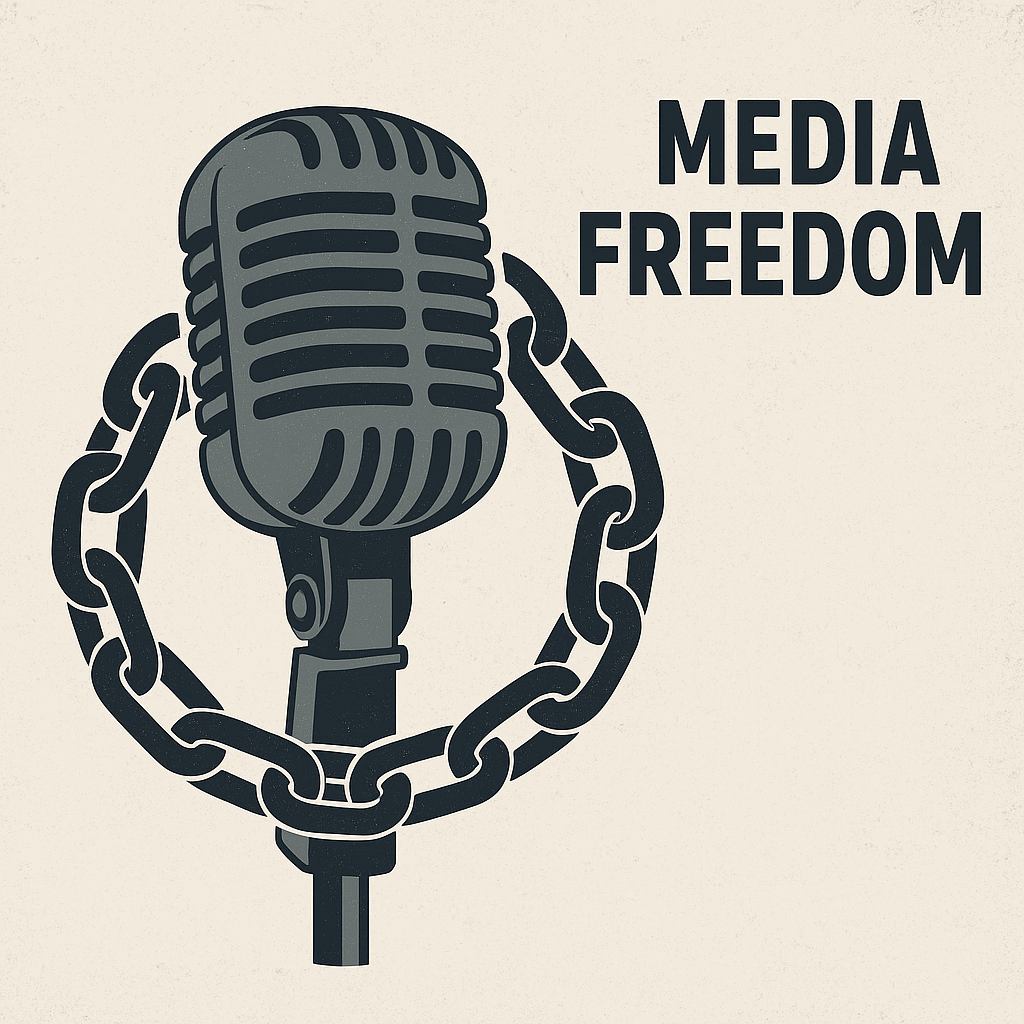In recent years, a worrying trend has taken hold in West Africa: several governments are using broadly defined security, press, and emergency laws to crack down on journalists, bloggers, and media outlets that are critical of power. What appears on the surface as efforts to protect national security or public order are increasingly serving to stifle dissent and intimidate those who speak out.
Here are recent examples from Ghana, Senegal and other West African countries, showing how governments are deploying legal instruments to limit free expression and what that means for media freedom.
What’s Happening
Burkina Faso: Emergency Laws and Arbitrary Arrests
Since the 2022 coup in Burkina Faso, the ruling military junta has relied heavily on emergency legislation to silence critical voices. Under these laws:
-
The Journalists Association’s president and vice-president, Guezouma Sanogo and Boukari Ouoba, along with journalist Luc Pagbelguem, were arrested in March 2025 after publicly protesting media restrictions. Their precise whereabouts later became unknown.
-
Authorities dissolved the Journalists Association the day after the arrests.
-
Journalists have also been arbitrarily conscripted, detained, and in some cases disappeared under the junta.
These actions follow public criticism by media houses of the junta and reporting on civilian harm; the government’s response has been legal sanctions, forced silence, and withholding access to information
Senegal: Press Code, Decrees, and Suspensions
In Senegal, the government has used regulations and administrative decrees to enforce compliance and restrict media outlets:
-
A decree signed in April 2025 by the Minister of Communication ordered immediate suspension of nearly 381 media outlets which were judged noncompliant with a new press code.
-
Media outlets face frozen bank accounts and suspension of state contracts often their lifeline. This financial pressure is a form of indirect censorship.
-
Journalists have also protested via “press-free days” to draw attention to what they call “repressive actions” by the new administration.
Mali, Niger, Nigeria: Expanding Legal Tools for Censorship
Beyond Ghana and Senegal, other West African states are also employing legal and security laws as tools of suppression:
-
Mali: Journalist Alfousseini Togo was detained in April 2025 after criticizing the judiciary. He was charged with undermining state institutions and disturbing public order.
-
Niger: Since the 2023 coup, journalists have been arrested and intimidated for covering politically sensitive topics or alleging government wrongdoing. New laws have criminalized “defamatory” or “insulting” social media content and reporting that may disturb “public order.”
-
Nigeria: At least 17 journalists and 87 citizens were unlawfully arrested in 2024 under national security and “defamation” or “cybercrime” laws after reporting or sharing critical content.
What Laws Are Being Used—and How
The tools governments are using share some common features:
-
Broad, vague definitions of “national security,” “public order,” or “disturbing public peace,” which can encompass critical reporting, protests, or even social media criticism.
-
Use of emergency and anti-terror laws to justify forced disappearances, arrests without clear charge, conscription of dissenting voices, or shutting down media outlets.
-
Regulatory bodies (e.g., media commissions) empowered to suspend licenses or force outlets to comply with strict codes.
-
Financial pressure: freezing bank accounts of media outlets, suspending contracts with state advertising or procurement all denying outlets revenue.
-
Judicial harassment: defamation, “disturbing the peace,” “undermining state institutions” used as criminal charges.
Why This Matters
-
Chilling effects on journalism: When journalists risk arrest, loss of license, or violence, many self-censor public accountability fades.
-
Reduced transparency: Critical reports on governance, corruption, human rights abuses are suppressed, weakening citizens’ ability to hold power to account.
-
International reputation: Media freedom correlates with democratic legitimacy; these crackdowns risk isolating countries diplomatically.
-
Slippery slope: Once governments normalize abuse of security laws, dismantling them later becomes difficult without significant political pressure.
Recent Example (Hypothetical Ghana) – Need for More Reporting
While Ghana has been relatively more open compared to some neighbors, there are signs in recent months of governments trying to tighten control:
-
Media organizations have reported threats of legal suits under defamation or national security laws for critical commentary.
-
Bloggers and online journalists say they face surveillance and risk of arrest when commenting on government corruption.
-
Civil Society groups are calling for clear laws to protect press freedom, but legislative proposals to limit false news, insults, or sedition remain broad and risky.
In Ghana, concrete recent cases under newly tightened security laws remain fewer or less documented than in Burkina Faso or Senegal. But the trend of using legal instruments security, cybercrime, defamation laws to intimidate critical voices is a growing concern among media rights groups.
The pattern is explicit: governments in West Africa are increasingly exploiting security laws to silence critics, control narratives, and limit accountability. While there are some recent reforms Senegal’s revised amnesty law, for example the overall trajectory largely points toward more restrictions, less openness, and growing fear among journalists.
Free media is not optional, it is essential for democracy. If West African nations do not act quickly to protect their journalists and press institutions, the space for dissent and truth may shrink beyond recovery.


